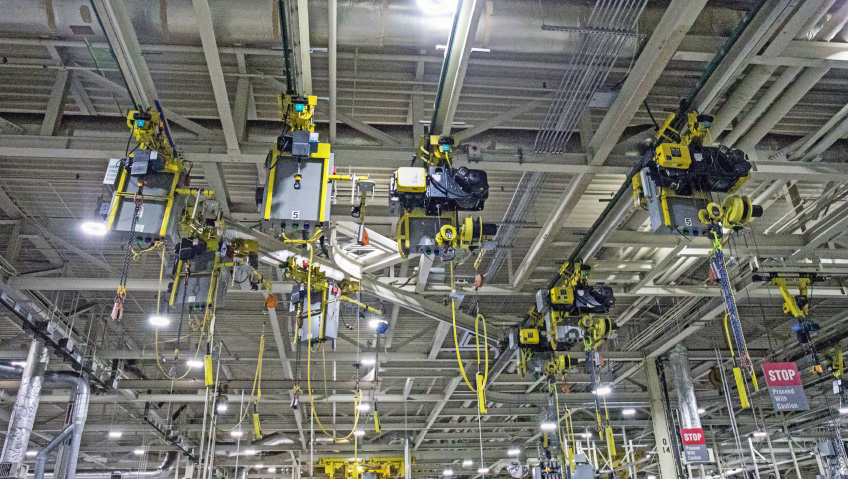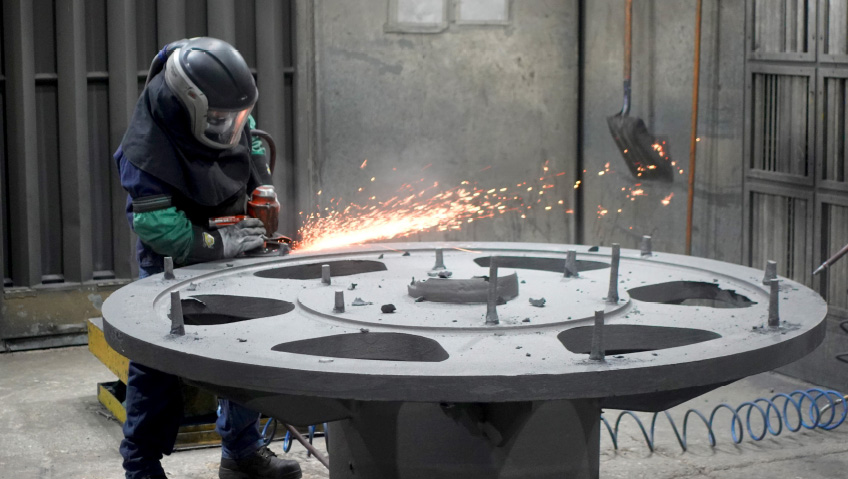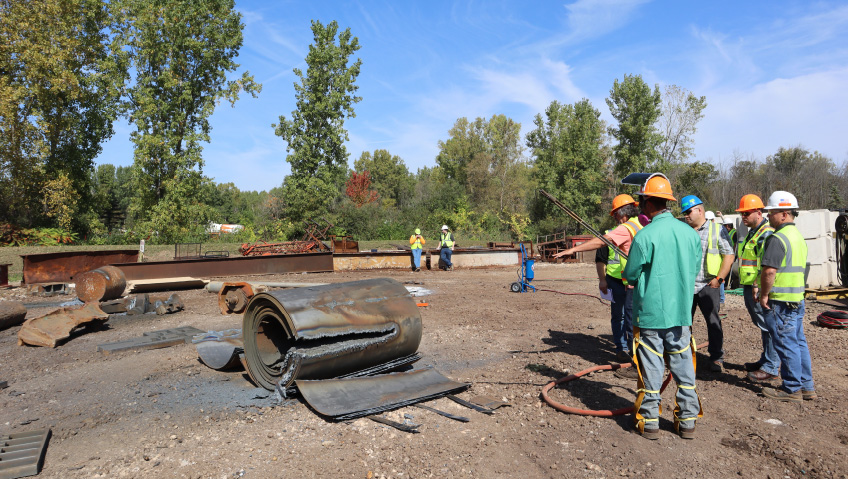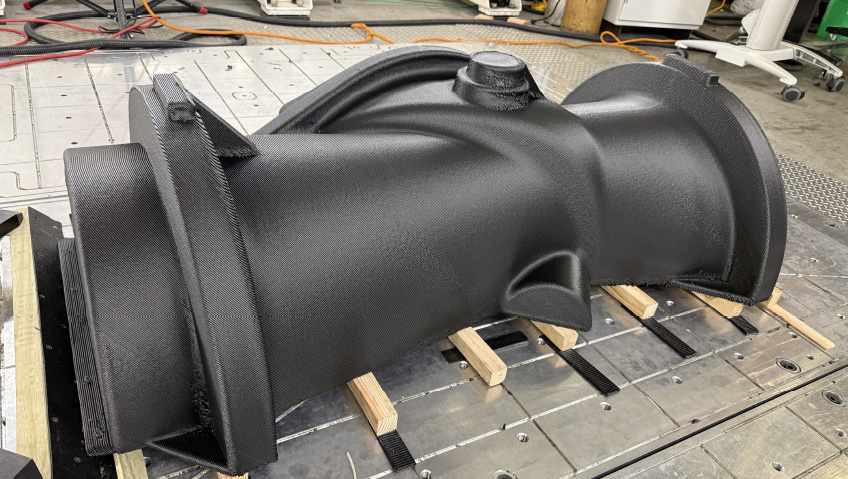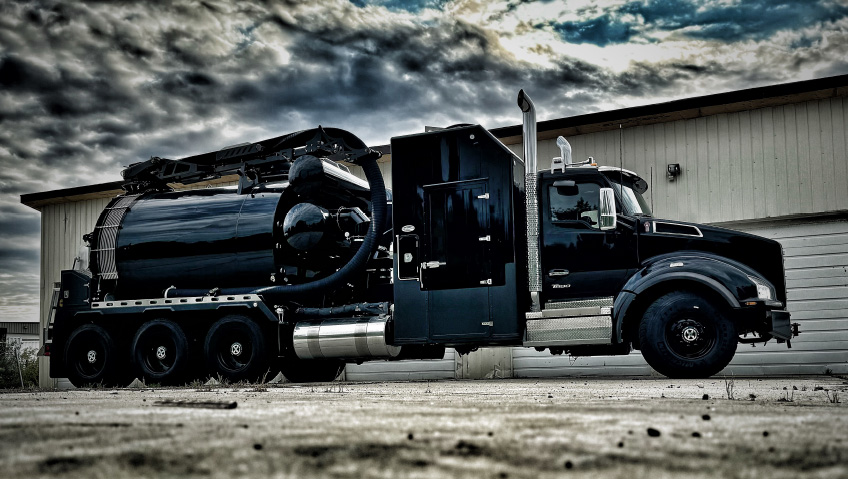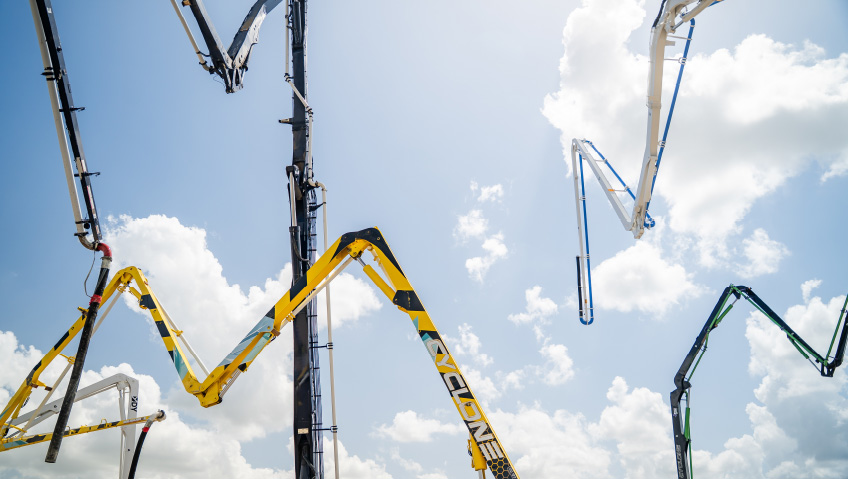Handling Systems & Conveyors, Inc. (HSC) of Little Rock, Arkansas, specializes in large material handling equipment used to transport parts and structures in industrial settings. More specifically, the company—which marked its thirtieth anniversary this year—designs, manufactures, builds, repairs, services, and installs cranes and industrial conveyor systems. Its clients are primarily found in the heavy manufacturing sector, where conveying and lifting large items are central to the workflow.
“We’ve built everything from assembly lines for Boeing commercial aircraft to monorail systems to transfer fuselage components for Spirit AeroSystems. HSC has provided a variety of material handling systems for Peterbilt Motors such as shuttle cranes, storage and retrieval systems, and monorails, along with custom tooling. One of our defense contractor customers is Lockheed; we make all kinds of products for them,” states Andrew Everett, company president and one of its founders. “We’ve built systems that handle railcars, concrete vaults, oil field products, turbine blades, paper products and just about anything you can think of in between. Most of what HSC builds is for items weighing from a few hundred pounds to items weighing 50 to 100 tons.”
Other prominent clients include Toyota, Ford, General Motors, SpaceX, Caterpillar, Harley-Davidson and many military and government contractors. Most customers are based in the United States, although the firm has done projects in Canada, Mexico, Brazil, and the United Kingdom. Aside from control systems, which are manufactured by subcontractors, it self-performs most of its services.
In addition to the head office in Little Rock, HSC has branches in Fort Worth and Houston in Texas and Montgomery and Mobile in Alabama. Recently HSC purchased a new facility near Chattanooga, Tennessee. The Chattanooga branch will be used for light manufacturing to augment the main manufacturing operations in Little Rock and Fort Worth. Conveyor components are primarily manufactured in Little Rock while Fort Worth and Chattanooga manufacture Bridge Crane systems.
In the beginning, the business model primarily centered on conveyors. That focus eventually broadened to include cranes. As for the company’s enduring success, Everett points to the talented, dedicated workforce.
“We have great people. It takes a lot of good people to make a company go, and we have really good people from top to bottom,” he states. Other differentiators that have helped HSC survive and thrive include innovative products and stellar customer care.
“I can’t speak for other people but we spend a lot of time training our technicians. They understand the systems and the electronics as well as the mechanical components. This gives our technicians an advantage in the quick diagnosis of problems, resulting in faster repair which in turn means less downtime. Our customers don’t deal with us because of our competitive pricing; they deal with us because of our response and expertise. That’s what I think separates us from others. [Clients] know HSC will get it done right the first time, resulting in less downtime,” he explains.
While HSC uses standard structural components, equipment it produces is generally customized to client specifications. Within the conveyor category, popular products include power and free conveyors, slat conveyors, towline conveyors, and more. In the crane category, it excels at box girder cranes, gantry cranes, work station cranes, jib cranes and tank-line cranes, among other items.
While the bulk of the equipment it makes is one-of-a-kind, HSC also offers a pair of trademarked products called “Smarthoist” and “Smartcrane.” “These are fully automated x-, y-, and z-axis systems for handling precise movements without people in the processes. This provided a higher level of safety within the process,” says Everett.
Most factory cranes are operated manually with radio or pendant controls. By contrast, Smartcrane and Smarthoist feature linear encoders and a programmable logic controller (PLC). These high-tech solutions can control crane motions, safeguarding the process and the operator.
HSC has been musing about the possibility of launching a consumer products line. Over the years, company engineers have “designed some pretty interesting consumer products,” says Everett, mostly for their personal needs at home or on the ranch. He cites a product that attaches to a four-wheeler or tractor to clear brush as an example. Certain legal and regulatory issues must be sorted out before a consumer line is launched, however. Once these matters are settled, a final decision will be made regarding consumer goods.
It is a safe bet that any consumer items HSC develops will adhere to the same stringent quality controls that have guided the company for decades. It belongs to several industry groups, including the Crane Manufacturers of America (CMAA) and Material Handling Institute (MHI) which describes itself as the “largest U.S. material handling and logistics association,” and the company follows guidelines set by these and other organizations.
HSC has also implemented tough training and inspection policies. Components and completed equipment are subjected to rigorous and repeated in-house inspections while staff receive comprehensive, continuous training. “Whether they’re welders or electricians, they are continuously updated, trained, and certified,” Everett says.
It offers a slew of ancillary services on top of the equipment it supplies. The company will deliver and install cranes and conveyors anywhere in the United States, at union and non-union plants alike. When performing installation duties at a unionized facility, HSC will assign a superintendent then recruit laborers from the local union hall. In right-to-work states or at non-union plants, it simply sends a crew of its own to do installations.
Upgrades and rebuilds represent another service. Clients can bring their equipment to HSC, or the company will travel to the customer’s worksite. In similar fashion, the company does crane and hoist inspections. Annual inspections of such equipment are required under Occupational Safety and Health Administration (OSHA), American National Standards Institute (ANSI), and CMAA regulations. It can provide fully-trained and certified inspectors to perform these duties.
Load testing is yet another specialty. Cranes must be load tested prior to initial use or after any major repair or rebuild. These are important safety requirements of OSHA and CMAA. Protection of the workers and safe operations are what HSC services are about.
“We’ve load-tested up to seventy-five tons. It’s done in a variety of ways. Each of our facilities has usually 60,000 – 75,000 pounds of plate steel that we use for testing. At customer locations where water is readily available, tests can be done with water bags; fill them up and you can test just about anything. Other times, we will rent weights from a mobile crane company or a heavy equipment company. We’ve rented coiled steel from a steel warehouse. We have scales we hang from the crane hooks to measure exactly what the test load is,” explains Everett.
The company also conducts safety training, usually at a client’s worksite. Safety trainers from HSC are industry-certified and aware of the latest safety-related measures and regulations. Available training courses include lessons on machine guarding, occupational noise exposure, fire prevention, combustible and flammable liquids, personal protective equipment, and welding and cutting safety. It recently hired a staffer to develop podcasts and videos to complement the company’s in-person safety sessions.
The firm employs about one hundred people at present, up from roughly ninety this time last year. New hires must demonstrate a solid work ethic, a customer-first ethos, and a willingness to travel. It is also important that they be unafraid of heights; constructing cranes and conveyors can entail working “fifty to one hundred feet in the air.”
Anyone who wants a job at HSC is expected to embrace the company’s core values, which consist of dependability, quality, and professionalism. “That’s what we’re looking for throughout our entire organization. We want people who do quality work, who are dependable, and who are professional with all our customers,” says Everett. “We like to think of our employees as a family. We try to do the right thing all the time by our customers, and it’s the same with our employees. We try to treat everybody with respect.”
The company’s concern for its employees was evident during the COVID crisis. When the pandemic struck, HSC enhanced cleaning efforts with outside cleaners brought in to sanitize the facility and initiated other strategies to prevent infection. Despite these changes, work did not slow down. For the most part, the manufacturers to which it supplies were deemed essential businesses and not required to close.
As a result, it was business as usual throughout the worst of the pandemic. “We didn’t lose a step through COVID,” notes Everett.
COVID aside, the company is also dealing with the labor shortage affecting industry across North America. A low unemployment rate means there is not a big pool of people looking for work. “The biggest limiting factor in us growing is people. Adding people that have technical skills, that are willing to work, that have a strong work ethic. It’s a very tight labor market,” he states.
Still, he envisions a very bright future and projects rising revenues. These forecasts were developed through number-crunching research and discussions at company meetings.
“We plan for the future. We try to sit down every few years and update our plans. A year ago, we made our long-term projections. We did a three-year plan that has HSC at about $60 million in revenue and about ten percent EBITA (earnings before interest, taxes, and amortization). At five years, we expect to be in the $80-million range with comparable EBITA. There’s a lot more to each of those [projections] but that’s the high level view of it,” says Everett.

